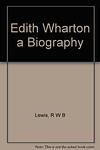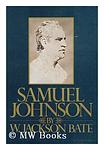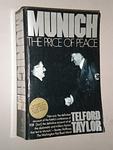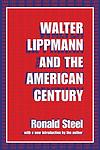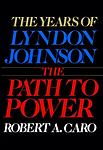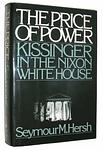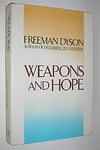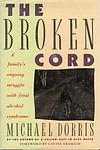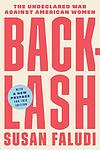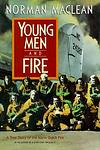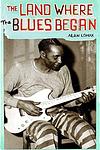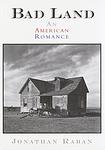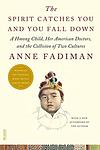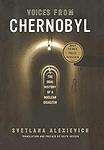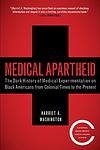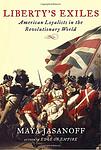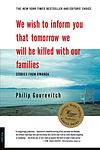National Book Critics Circle Award - Nonfiction
This is one of the 280 lists we use to generate our main The Greatest Books list.
-
Edith Wharton: A Biography by R. W. B. Lewis
This biography provides a detailed account of the life of renowned American author Edith Wharton. It explores her privileged upbringing in New York, her tumultuous marriage, her complex relationships, and her successful writing career. The narrative also delves into her experiences living abroad in France during World War I, her humanitarian efforts, and her eventual recognition as the first woman to win the Pulitzer Prize for Literature. The book offers a comprehensive insight into Wharton's life, her works and the society she lived in, painting a vivid picture of a woman ahead of her time.
-
Samuel Johnson by Walter Jackson Bate
This biography provides an in-depth look into the life of Samuel Johnson, an 18th-century English writer who contributed greatly to English literature as a poet, essayist, moralist, literary critic, biographer, and lexicographer. The book explores Johnson's struggles with depression, fear of death, and various physical ailments, as well as his intellectual prowess and his impact on literature. It also delves into his relationships with other notable figures of his time, offering a comprehensive portrait of a complex and influential man.
-
Facts of Life by Maureen Howard
"Facts of Life" is a novel that tells the story of an Irish-American family living in Bridgeport, Connecticut during the 20th century. It follows their experiences through significant historical events such as the Great Depression, World War II, and the Civil Rights Movement. The novel explores themes of identity, family dynamics, and the American Dream while providing a deep insight into the socio-political climate of the era.
-
Munich: The Price of Peace by Telford Taylor
"Munich: The Price of Peace" is a comprehensive examination of the Munich Agreement of 1938 and its implications on the onset of World War II. The book critically analyzes the roles of the key players - Britain, France, Germany, and Italy - in the agreement, their motivations, and the subsequent consequences. It provides an in-depth study of the diplomatic maneuvers, political intrigues, and the failure to stand against Hitler's aggression, which eventually led to the catastrophic global conflict.
-
Walter Lippmann and the American Century by Ronald Steel
This book provides an in-depth look at the life and work of Walter Lippmann, one of the most influential journalists in American history. The author explores Lippmann's role in shaping 20th century American politics and public opinion, his relationships with key political figures, and his views on democracy, liberty, and international relations. The book also examines Lippmann's personal life, including his early years, education, and family life.
-
The Mismeasure of Man by Stephen Jay Gould
The book is a critical analysis of the history of scientific racism and biological determinism, the belief that social and economic differences among human races, sexes, and classes are inheritable, inevitable, and natural. It challenges the idea that intelligence can be measured accurately and placed in a single, linear scale. The author refutes the arguments of those who support these theories, arguing that they are based on flawed methodologies, biased data, and unverifiable assumptions. Instead, he proposes that intelligence is multifaceted and cannot be quantified simplistically.
-
The Path to Power by Robert Caro
"The Path to Power" is a detailed biography of a U.S. president, tracing his life from his birth and upbringing in a poor rural community, through his college years, and onto his early political career. The book explores his personal and professional struggles, his ruthless ambition, and his relentless drive for power. It provides a deep insight into his character, his accomplishments, and the controversial methods he used to achieve his goals.
-
The Price of Power by Seymour M. Hersh
"The Price of Power" offers a critical examination of the presidency of Richard Nixon with a particular focus on the Vietnam War. The book delves into the secretive and often manipulative tactics employed by Nixon and his administration, including the undermining of peace talks to secure his own political victory. It presents a detailed and disturbing account of political maneuvering, deception and abuse of power at the highest level of American politics.
-
Weapons and Hope by Freeman Dyson
"Weapons and Hope" is a comprehensive exploration of the dynamics of nuclear weapons and arms control. The author, a renowned physicist, uses his scientific expertise to dissect the technical aspects of nuclear weapons, while also delving into the ethical, political, and strategic dimensions of the nuclear arms race. The book presents an insightful analysis of the Cold War era, the logic of deterrence, and the author's hopeful vision for a world free from the threat of nuclear warfare.
-
Common Ground by J. Anthony Lukas
"Common Ground" is a non-fiction book that provides an in-depth examination of racial tensions in Boston, Massachusetts during the 1960s and 1970s, primarily focusing on the controversial issue of court-ordered busing to integrate public schools. The narrative follows three families - one African-American, one Irish-American, and one Yankee - to depict the effects of these tensions on the city's different communities. The book also explores the historical, political, and social context of these events, offering a comprehensive analysis of a critical period in American history.
-
War Without Mercy by John W. Dower
This book provides a detailed analysis of the racial aspects that influenced the Pacific War during World War II. It explores the racial stereotypes, propaganda, and policies that were used by both the United States and Japan, and how these factors contributed to the extreme violence and hatred that characterized the conflict. The book also examines the impact of these racial attitudes on the post-war relations between the two countries.
-
The Making of the Atomic Bomb by Richard Rhodes
This comprehensive book provides an in-depth account of the development of the atomic bomb during World War II. It explores the scientific advancements that made the bomb possible, the political decisions that led to its creation, and the moral dilemmas faced by the scientists involved. The book also details the personalities of key figures in the Manhattan Project, the effects of the bomb on Hiroshima and Nagasaki, and the impact of nuclear weapons on the world.
-
Parting the Waters by Taylor Branch
"Parting the Waters" is a comprehensive and engaging chronicle of the civil rights movement in America from 1954 to 1963. It offers an in-depth look into the lives of key figures such as Martin Luther King Jr., and their struggle to end racial segregation and discrimination. The narrative is filled with detailed accounts of major events from the Montgomery Bus Boycott to the March on Washington, providing a vivid picture of this pivotal era in U.S. history.
-
The Broken Cord by Michael Dorris
This book is a poignant memoir of a single man who adopts a three-year-old American Indian boy, only to discover several years later that his son suffers from fetal alcohol syndrome, a condition that was not well understood at the time. The narrative chronicles the man's journey to understand and cope with his son's condition, while also shedding light on the devastating effects of alcohol abuse on unborn children. The book also delves into the broader social issues surrounding Native American communities and the systemic problems that contribute to alcoholism among these populations.
-
The Content of Our Character by Shelby Stelle
This book is a thought-provoking exploration of race relations in America. The author, an African-American scholar, shares a series of personal reflections, anecdotes, and analyses to challenge both liberal and conservative dogmas about race. He argues that self-help, self-esteem, and self-reliance are the keys to solving many of the problems in black communities, and criticizes the culture of victimhood that he believes undermines these values. The book also examines the role of race in education, employment, and criminal justice, providing a nuanced and balanced perspective on these complex issues.
-
Backlash by Susan Faludi
"Backlash" is a critical examination of the societal, political, and cultural forces that aim to undermine the progress of women's rights in the late 20th century. The author presents a detailed analysis of the backlash against feminism, arguing that media, advertising, Hollywood, and the conservative political movement have all played a role in promoting regressive stereotypes about women and limiting their opportunities. The author also explores the negative impacts of this backlash on women's economic status, reproductive rights, and overall wellbeing.
-
Young Men and Fire by Norman Maclean
The book tells the tragic story of 13 smokejumpers who lost their lives in the 1949 Mann Gulch fire in Montana. The author examines the circumstances leading up to the disaster, the fire's aftermath, and its lasting impact. The narrative combines elements of reportage, biography, and nature writing, and it serves as a meditation on writing, grief, and the human character.
-
The Land Where the Blues Began by Alan Lomax
This book explores the origins and cultural significance of blues music in the Mississippi Delta. It provides a detailed account of the author's experiences in the 1930s and 1940s, when he traveled through the region, recording interviews and music from local blues musicians. The book vividly portrays the harsh living conditions and systemic racism that influenced the development of blues music, and celebrates the resilience and creativity of the African American musicians who created this influential music genre.
-
The Rape of Europa by Lynn Nicholas
"The Rape of Europa" is a comprehensive study of the systematic theft and deliberate destruction of Europe's art treasures during World War II. The book explores the Nazis' obsession with art, their looting of museums and private collections, and their efforts to eradicate the artistic heritage of the people they sought to dominate. It also highlights the heroic efforts of art historians and curators who risked their lives to protect these treasures, as well as the ongoing efforts to recover and return the stolen art.
-
A Civil Action by Jonathan Harr
This book is a non-fiction account of a water contamination case in Woburn, Massachusetts. A determined lawyer fights on behalf of eight families whose children have died from leukemia caused by industrial pollution. The narrative explores the complex legal battle against two large corporations, revealing the intricacies of the American legal system, the sacrifices required for justice, and the impact of corporate power on individual lives.
-
Bad Land: An American Romance by Jonathan Raban
This book is a historical exploration of the American West, specifically the region of Eastern Montana. The author delves into the experiences of the British and Scandinavian settlers who were lured to this area in the early 20th century by railroad advertisements promising fertile farmland. Through a combination of historical research, personal narratives, and travelogue-style observations, the author paints a vivid picture of the harsh realities these settlers faced, including drought, isolation, and economic hardship. The book also reflects on the lasting impact of these experiences on the region's culture and identity.
-
The Spirit Catches You and You Fall Down by Anne Fadiman
This book explores the clash between a small county hospital in California and a refugee family from Laos over the care of Lia Lee, a Hmong child diagnosed with severe epilepsy. The book delves into the contrasting perspectives of Lia's family, who see her condition as a spiritual matter, and her doctors, who perceive it as a medical issue. This cultural divide leads to a tragic misunderstanding, highlighting the challenges of navigating a complex healthcare system while maintaining cultural beliefs and traditions.
-
Time, Love, Memory by Jonathan Weiner
"Time, Love, Memory" is a scientific exploration of the genetic basis of behavior, focusing on the groundbreaking research of Nobel Prize-winning biologist Seymour Benzer. The book delves into Benzer's work with fruit flies to uncover the genetic roots of time, love, and memory, and how genes shape behavior. It also provides a comprehensive look at the history and future of genetics and its impact on our understanding of life and evolution.
-
Newjack: Guarding Sing Sing by Ted Conover
The book is a first-hand account of the author's experience working as a correctional officer at Sing Sing prison in New York. Through his narrative, the author provides an in-depth look at the American penal system, revealing the harsh realities of prison life, the struggles faced by inmates, and the moral and ethical dilemmas faced by the staff. The author's year-long journey as a prison guard offers a unique perspective on the often overlooked aspects of the criminal justice system.
-
Double Fold: Libraries and the Assault on Paper by Nicholson Baker
The book is a critical examination of the practice of libraries in the United States, which, in the name of preservation, have been systematically destroying original newspapers and books to replace them with microfilmed copies. The author argues that this process, far from saving the material, often results in the loss of valuable information and the tactile experience of reading. He also criticizes the library community for its uncritical acceptance of new technologies and its failure to question the implications of these practices.
-
Sons of Mississippi by Paul Hendrickson
"Sons of Mississippi" is a powerful exploration of the legacy of racism in the American South. The book uses a famous photograph of seven Mississippi sheriffs preparing to thwart James Meredith's integration of the University of Mississippi in 1962 as a starting point. The author then traces the lives and descendants of these men, providing a deep and nuanced look at the enduring effects of prejudice and discrimination, as well as the struggle for civil rights and racial equality in the United States.
-
The Reformation by Diarmaid MacCulloch
"The Reformation" is a comprehensive history of the European Reformation, which took place in the 16th and 17th centuries. It explores the religious revolution that led to the split of the Western Church into Protestant and Catholic factions, and how this division influenced the development of Western civilization. The book delves into the political, cultural, and social impacts of the Reformation, providing an in-depth look at its key figures, such as Martin Luther and John Calvin, and the profound changes they brought about in society.
-
Voices from Chernobyl by Svetlana Alexievich
This book is a haunting collection of personal accounts about the nuclear disaster at Chernobyl in 1986. The author has meticulously gathered and woven together interviews from survivors, including former workers of the plant, residents, and soldiers. Each narrative reveals the physical and psychological impact of the disaster on individual lives, creating a deeply moving oral history of an event that has had profound consequences on the people of Belarus and Ukraine.
-
Rough Crossings by Simon Schama
"Rough Crossings" is a historical account of the experience of African American slaves during the American Revolution. It focuses on the British promise to grant freedom to slaves who joined their cause, and the subsequent journey of these former slaves to Nova Scotia and Sierra Leone. The book explores the complexities of this period in history, questioning the traditional narrative of the American Revolution and shedding light on the struggle for freedom and equality by African Americans.
-
Medical Apartheid by Harriet A. Washington
This book is a comprehensive history of medical experimentation on African Americans from the era of slavery to the present day. It investigates the racial disparities in healthcare and delves into the dark history of unethical and often deadly experiments conducted on black people in the United States. The author explores the roots of these practices, their implications, and the ongoing struggle for racial equality in the healthcare system.
-
The Forever War by Dexter Filkins
"The Forever War" is a non-fiction account of the conflicts in Afghanistan and Iraq from a journalist's perspective. The author, who was embedded with American troops, provides a raw and unfiltered look at the realities of war. The book gives a detailed description of the experiences of soldiers, civilians, and the author himself, offering a unique perspective on the ongoing conflicts. It explores the complexities and consequences of war, and the impact it has on those directly involved and the wider world.
-
The Age Of Wonder by Richard Holmes
"The Age of Wonder" explores the scientific and cultural advancements of the late 18th and early 19th centuries, known as the Romantic Age. Richard Holmes delves into the lives and achievements of prominent figures such as Joseph Banks, Humphry Davy, and William Herschel, who revolutionized fields like astronomy, chemistry, and botany. Through vivid storytelling, Holmes captures the spirit of curiosity, imagination, and wonder that defined this era, highlighting the profound impact it had on shaping our modern understanding of science and the world.
-
The Warmth Of Other Suns by Isabel Wilkerson
"The Warmth of Other Suns" is a powerful and deeply moving narrative that chronicles the Great Migration, a significant event in American history that saw millions of African Americans leave the South in search of better opportunities and freedom from racial oppression. Through the compelling stories of three individuals, the book explores the challenges, triumphs, and sacrifices made by these courageous migrants as they embarked on a journey to find a new life in the North and West, ultimately reshaping the social and cultural landscape of America.
-
Liberty's Exiles: American Loyalists in the Revolutionary World by Maya Jasanoff
The book provides an in-depth exploration of the experiences of American Loyalists who were forced into exile following the American Revolution. It details their struggles and hardships as they sought to rebuild their lives in far-flung corners of the British Empire, including Canada, the Caribbean, Sierra Leone, and India. The book also examines the broader impact of this mass migration on the shaping of the British Empire and the early United States.
-
Far From the Tree: Parents, Children and the Search for Identity by Andrew Solomon
This book explores the experiences of families accommodating children with physical, mental and social disabilities and differences. The author examines various conditions such as deafness, dwarfism, Down syndrome, autism, schizophrenia, disability, prodigiousness, transgender, and criminality. The book delves into the challenges, struggles, but also the triumphs, of these families and how they find profound meaning in their differences. It's a comprehensive study of identity, love, and acceptance.
-
Five Days at Memorial: Life and Death in a Storm-Ravaged Hospital by Sheri Fink
The book provides an in-depth investigation into the crisis at a New Orleans hospital in the wake of Hurricane Katrina. It delves into the harrowing five days where staff, patients, and their families were trapped in the hospital without power or a functioning evacuation plan. The narrative explores the ethical dilemmas faced by the medical staff, including alleged euthanasia of critically ill patients, and the subsequent legal battles, raising profound questions about end-of-life care and disaster management.
-
The Woman Warrior: Memoirs of a Girlhood Among Ghosts by Maxine Hong Kingston
This memoir explores the life of a first-generation Chinese-American woman, navigating the complexities of her dual heritage. Through five interconnected stories, the book delves into the author's childhood experiences, her mother's tales of old China, and the struggles of reconciling these two worlds. The memoir is a blend of reality and mythology, illustrating the author's struggle with her identity, the expectations of her traditional Chinese family, and the challenges of growing up in a predominantly white American society.
-
We Wish to Inform You That Tomorrow We Will Be Killed With Our Families: Stories from Rwanda by Philip Gourevitch
This book is a chilling account of the Rwandan genocide that took place in 1994, where an estimated 800,000 to 1 million Tutsis and moderate Hutus were systematically murdered within a span of 100 days. The author provides a detailed narrative based on interviews with survivors and perpetrators, shedding light on the horrifying events, the international community's failure to intervene, and the aftermath of the genocide. The book serves as a powerful critique of political indifference and a poignant exploration of the depths of human brutality.
-
The Problem of Slavery in the Age of Emancipation by David Brion Davis
"The Problem of Slavery in the Age of Emancipation" is a historical work that explores the complexities of slavery and the abolitionist movement during the Age of Emancipation. The book delves into the moral, political, and ideological challenges faced during this time, focusing on the struggles of enslaved Africans and African Americans. It also examines the role of colonization and the struggle to redefine "black" and "white" identities in the aftermath of slavery. The author uses a comparative approach, looking at the American, British, and French experiences of slavery and emancipation.
-
Dreamland: The True Tale of America's Opiate Epidemic by Sam Quinones
This book provides an in-depth exploration of the opioid crisis in America, tracing its origins and examining its devastating impact. It delves into the lives of addicts, doctors, drug traffickers, and families affected by the epidemic, providing a comprehensive look at the complex factors that contributed to the crisis. The narrative also discusses the role of pharmaceutical companies and uncovers how the aggressive marketing of painkillers led to widespread addiction. Additionally, it sheds light on the black tar heroin trade, revealing how it has infiltrated small towns and suburban communities.
-
Evicted: Poverty and Profit in the American City by Matthew Desmond
This book provides an in-depth look at the housing crisis in America, focusing on eight families in Milwaukee who are struggling to keep a roof over their heads. The author explores the role of eviction in perpetuating poverty, illuminating the business of landlords and the harsh reality of tenants in impoverished neighborhoods. The book offers a close examination of the intersection between profit and poverty, revealing how both are intricately linked in the American housing market.
-
The Evangelicals: The Struggle to Shape America by Frances FitzGerald
This book provides a comprehensive history of the evangelical movement in America, tracing its evolution from the days of Jonathan Edwards and the Great Awakening to its significant influence on modern-day politics. The author examines the internal dynamics within the evangelical community, its relationship with other religious groups, and its impact on American society and politics. The narrative delves into the rise of the religious right, the role of evangelicals in the culture wars, and their influence on the Republican Party.
-
Directorate S: The C.I.A. and America's Secret Wars in Afghanistan and Pakistan by Steve Coll
This book provides an in-depth examination of the covert wars conducted by the CIA in Afghanistan and Pakistan, also known as "Directorate S." It offers an analysis of the complex relationships between the CIA, the military, and foreign governments, as well as the political and cultural challenges that shaped the war. The book also explores the consequences of these secret wars, including the rise of the Taliban and Al-Qaeda, and the impact on U.S. foreign policy.
-
Say Nothing by Patrick Radden Keefe
This book is a gripping exploration of the Troubles in Northern Ireland, focusing on the disappearance of Jean McConville, a mother of ten who was abducted by the Irish Republican Army (IRA) in 1972. The narrative weaves together the stories of several key figures in the IRA, including Dolours Price, an IRA member who became disillusioned with the organization, and Brendan Hughes, a former IRA commander. The book delves deep into the political and personal complexities of the conflict, revealing the long-lasting trauma and moral ambiguities that continue to haunt those involved.
-
Island on Fire: The Revolt That Ended Slavery in the British Empire by Tom Zoellner
The book chronicles the 1831 slave rebellion in Jamaica, a significant event that hastened the abolition of slavery in the British Empire. The narrative details the planning and execution of the revolt, the brutal suppression by the colonial authorities, and the aftermath, including the public outrage in Britain that led to legislative reform. The book also explores the role of key figures in the uprising, providing a detailed account of this pivotal moment in history.
National Book Critics Circle, 45 Books
The National Book Critics Circle Award is an annual award given by the National Book Critics Circle (NBCC) to promote the finest books and reviews published in English.
Added about 10 years ago.
This list has a weight of 29%. To learn more about what this means please visit the Rankings page.
Here is a list of what is decreasing the importance of this list:
- List: only covers 1 year (yearly book awards, best of the year, etc)
- List: only covers 1 specific language
- Voters: are mostly from a single country/location
If you think this is incorrect please e-mail us at [email protected].
